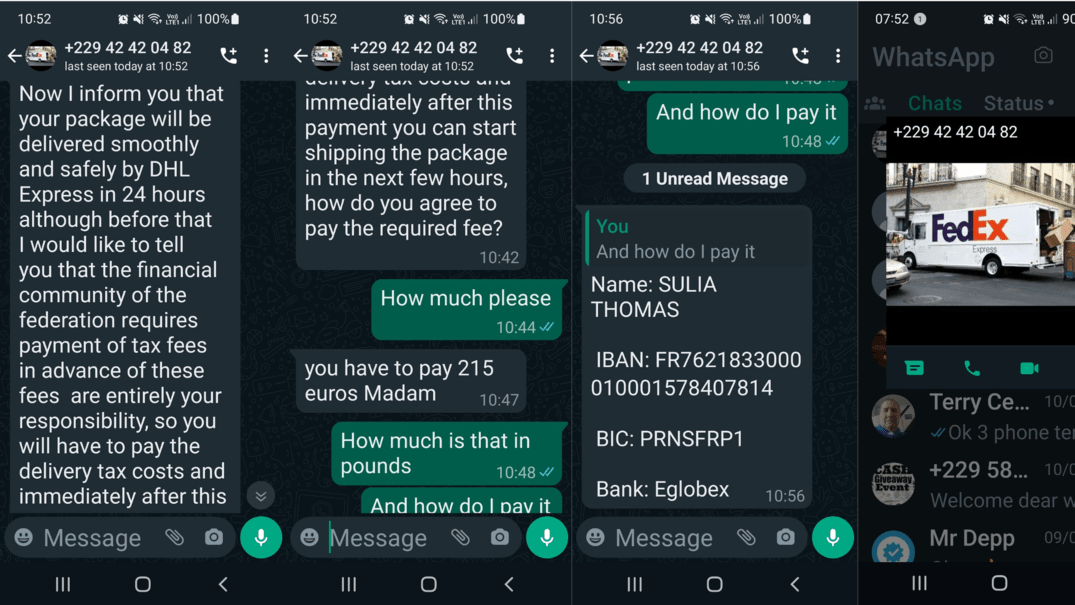FedEx Scam Alert
Don’t Fall for Fake Delivery Demands
In today’s digital age, scams and fraudulent schemes have become increasingly sophisticated, with scammers employing deceptive tactics to prey on unsuspecting individuals. One of the scams that have been making the rounds is the “FedEx Scam,” where scammers falsely claim you owe them money for a delivery you didn’t order, and they demand an advance payment. In this blog post, we’ll expose the FedEx scam and provide valuable insights on how to recognize and protect yourself from such scams.
The FedEx Scam: Unmasking the Deception
The FedEx scam revolves around a crafty ploy where scammers impersonate FedEx employees and insist that you owe them money for a package or delivery that you never ordered. These scammers employ cunning techniques to manipulate their victims into making an advance payment.

How the FedEx Scam Operates
- Unsolicited Messages: Scammers often initiate contact via email, text messages, or phone calls, alleging that a package or delivery is pending due to an unpaid fee. They may provide you with a fake tracking number to appear more convincing.
- Fictitious Urgency: To create a sense of urgency and panic, scammers will claim that the package contains time-sensitive or valuable items. They’ll press you to make an immediate payment, often in the form of gift cards, wire transfers, or cryptocurrency.
- Spoofed Communication: These scammers are clever at making their messages appear legitimate. They might use fake FedEx logos, email addresses, or phone numbers that seem authentic but are, in fact, fraudulent.
Protecting Yourself from the FedEx Scam
- Verification is Key: Always take the time to verify the legitimacy of any communication claiming to be from FedEx. Check for spelling errors, suspicious email addresses, and inconsistent details in the message.
- Contact FedEx Directly: If you receive an unexpected message requesting payment, reach out to FedEx through their official website or contact information listed on their website. Do not use any contact details provided in the suspicious message.
- Guard Your Personal Information: FedEx will never ask for sensitive information like Social Security numbers, bank account details, or advance payments via email or phone. Be extremely cautious about sharing such information.
- Stay Informed: Keep yourself informed about the latest scams and fraud alerts circulating in your area or online. Knowledge is a powerful tool in protecting yourself against scams.
The FedEx scam, with its deceptive tactics, is a stark reminder of the need for vigilance and skepticism when dealing with unsolicited messages demanding payments. It’s crucial to trust your instincts, verify information, and never succumb to pressure from unknown individuals claiming to represent FedEx. By staying informed and cautious, you can thwart these scams and safeguard your finances and personal information from falling into the wrong hands. Remember, it’s always better to be safe than sorry.




